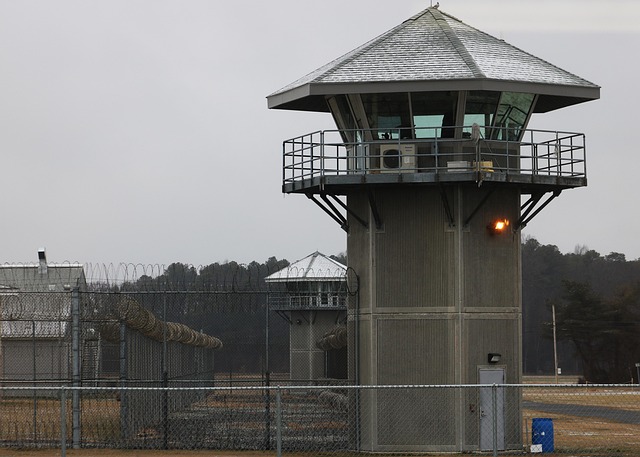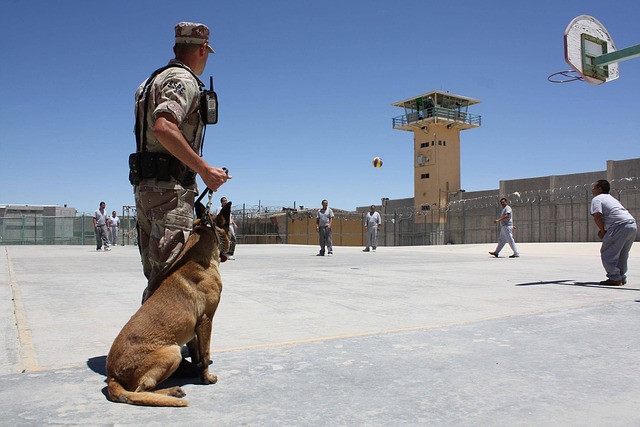College campuses enforce stringent DUI laws to protect students and visitors. Commercial drivers face unique challenges with severe penalties. Understanding local rules, adhering to BAC limits, and seeking legal counsel are vital for prevention. Specialized defense strategies challenge evidence admissibility and highlight mitigating factors in College Campus DUI Prevention. Comprehensive programs use peer education and alternative transportation to discourage risky behavior.
“In the realm of transportation, commercial drivers face unique challenges when accused of Driving Under the Influence (DUI). This article delves into the intricate details of Commercial Driver DUI Defense, focusing on college campus DUI laws and prevention programs. Understanding the rights of these professionals is paramount, especially considering the stringent regulations that govern their industry. We explore evidence, field sobriety tests, and effective defense strategies while emphasizing the significance of campus-based prevention initiatives to mitigate this growing concern.”
- Understanding College Campus DUI Laws
- Rights of Commercial Drivers in DUI Cases
- Evidence and Field Sobriety Tests
- Defense Strategies for DUI Accused Drivers
- Prevention Programs on College Campuses
Understanding College Campus DUI Laws

College campuses across the country have unique DUI laws and regulations designed to keep students, faculty, and visitors safe. These laws often reflect a heightened awareness of the potential risks associated with alcohol consumption among younger populations. Understanding these rules is crucial for anyone operating a vehicle on or near campus, as violations can lead to severe consequences, including suspension or expulsion for students and significant fines and penalties for commercial drivers.
Prevention is key when it comes to College Campus DUI cases. Commercial drivers should familiarize themselves with local regulations, adhere strictly to blood alcohol content (BAC) limits, and practice responsible drinking habits. Regular training on impaired driving recognition and alternative transportation options can also significantly reduce the risk of DUI incidents in these areas.
Rights of Commercial Drivers in DUI Cases

In the event of a DUI (Driving Under the Influence) arrest, commercial drivers face unique challenges compared to their non-commercial counterparts. Understanding one’s rights is crucial in such situations, especially considering the implications for their livelihood and the potential impact on college campus DUI prevention initiatives. Commercial drivers are entitled to legal counsel, just like any other citizen, which can significantly impact the outcome of their case. They have the right to remain silent, ensuring they don’t inadvertently incriminate themselves during interactions with law enforcement.
Additionally, commercial drivers should be aware that field sobriety tests and breathalyzer readings carry more weight in court due to regulatory requirements. Their cases often involve strict regulations and penalties set by the Department of Transportation (DOT). A conviction can lead to license suspension, hefty fines, and even job loss. Given the heightened stakes, it’s vital for commercial drivers to exercise their rights and seek qualified legal representation specializing in DUI defense, particularly with the focus on college campus safety and prevention strategies.
Evidence and Field Sobriety Tests

In a Commercial Driver DUI defense, understanding evidence and field sobriety tests is crucial for navigating the legal process. During a stop, officers may conduct various tests to assess an individual’s intoxication level. These include standardized field sobriety tests (SFSTs) such as the one-leg stand or walk-and-turn test, which are designed to gauge balance, coordination, and impairment. It’s important to remember that these tests have specific legal criteria for administration and interpretation, and any deviations could impact their admissibility in court.
Additionally, evidence from these tests is often complemented by other forms of proof, such as breathalyzer or blood test results. In the context of College Campus DUI Prevention, where safety is a top priority, law enforcement agencies strictly adhere to protocols to ensure accuracy and prevent any potential bias. This meticulous approach to evidence collection plays a significant role in determining guilt or innocence in Commercial Driver DUI cases.
Defense Strategies for DUI Accused Drivers

When facing a DUI charge, commercial drivers must understand that their situation demands tailored defense strategies. Given the potential consequences on their livelihood, these drivers should prioritize seeking legal counsel experienced in handling such cases. One key approach involves challenging the admissibility of evidence, such as breath or blood test results, by questioning the proper administration and calibration of testing equipment, which is particularly important given the heightened scrutiny faced by commercial operators.
Additionally, focusing on mitigating factors specific to college campus DUI prevention can strengthen defenses. This might include emphasizing the driver’s awareness of alcohol limits, cooperation with authorities, lack of a prior criminal record, or any extenuating circumstances that could influence the judge’s decision. Effective representation should also explore alternative transportation options and the driver’s commitment to responsible behavior moving forward.
Prevention Programs on College Campuses

Many colleges and universities across the country have implemented comprehensive College Campus DUI Prevention programs as a proactive measure against drunk driving. These initiatives often involve peer education, where student volunteers lead workshops and seminars to raise awareness about the dangers of alcohol consumption and impaired driving among their peers. By fostering open discussions and providing resources, these programs aim to discourage risky behavior and promote responsible decision-making.
In addition to educational efforts, College Campus DUI Prevention strategies may include offering alternative transportation options, such as shuttle services or designated drivers programs, to ensure students have safe ways to return home after social events. Such holistic approaches not only help reduce the incidence of DUI incidents but also contribute to a safer and more supportive academic environment.
Commercial drivers facing DUI charges require a comprehensive understanding of their rights and available defense strategies. By familiarizing themselves with college campus DUI laws, evidence protocols, and field sobriety tests, these drivers can navigate legal proceedings effectively. Additionally, exploring prevention programs on campuses and adopting proactive measures can significantly reduce the risk of such incidents. Remember, early intervention and knowledge are key to mitigating consequences for commercial driver DUI cases, fostering safer communities in light of these stringent legal standards.






